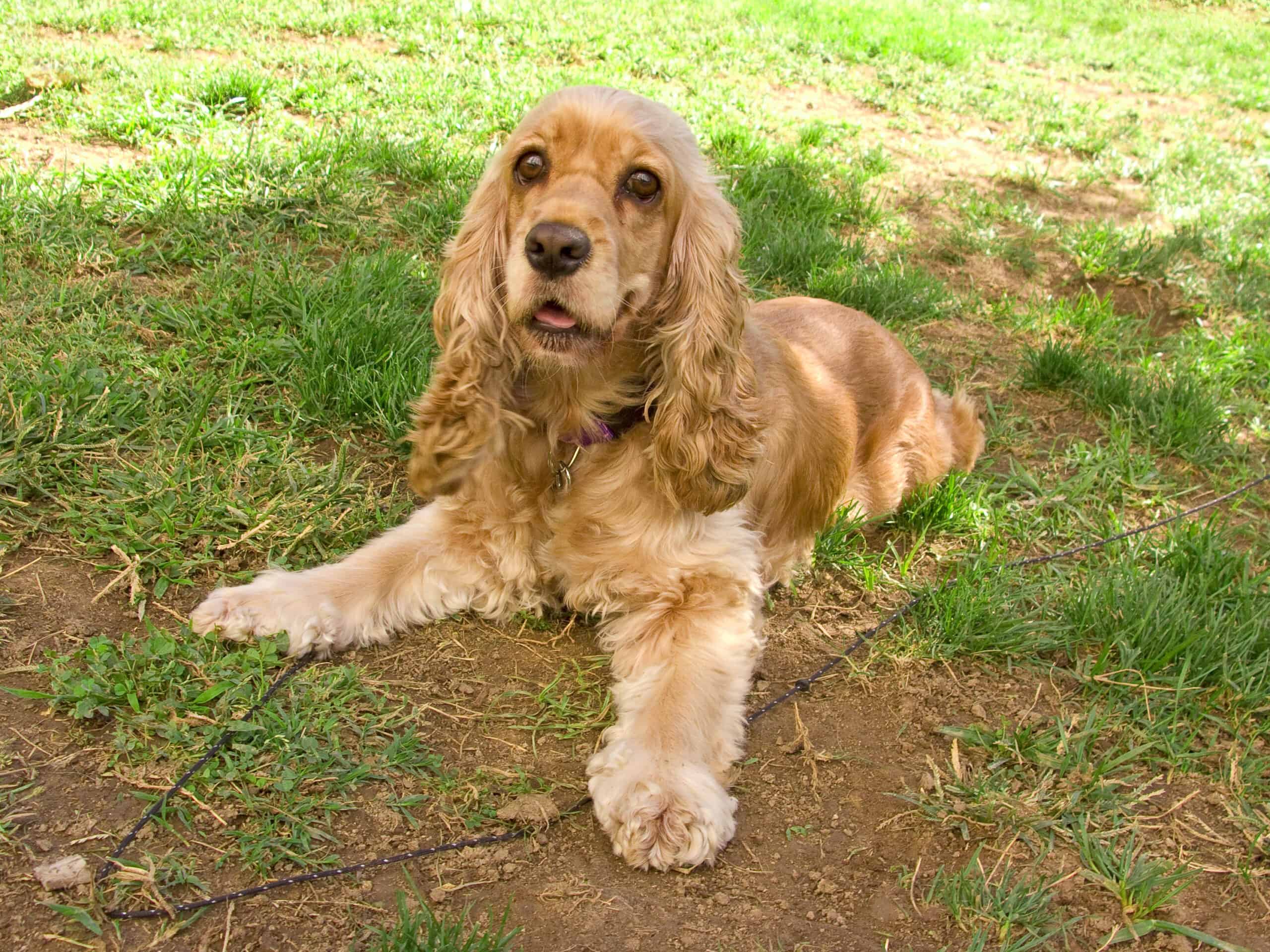Before bringing a Cocker Spaniel home, you might be wondering – can cocker spaniels be aggressive?
Cocker Spaniels are known for their friendly and loving personalities, making them a popular choice for families and individuals alike.
However, there have been concerns raised about whether these dogs can be aggressive.
This article will explore the topic of aggression in Cocker Spaniels and provide insight into whether or not these dogs have a tendency towards aggressive behavior.
Research suggests that Cocker Spaniels may be more prone to aggression than other dog breeds.
According to an article by ABC Science, studies conducted in Spain have found that Cocker Spaniels are more likely to display aggressive behavior towards their owners, strangers, and other animals.
However, it’s important to note that not all Cocker Spaniels are aggressive, and many are perfectly friendly and well-behaved.
So, what causes aggression in Cocker Spaniels? There are a variety of factors that can contribute to aggressive behavior in dogs, including genetics, socialization, and training.
Some Cocker Spaniels may have a genetic predisposition towards aggression, while others may become aggressive due to a lack of proper socialization or training.
It’s also possible for Cocker Spaniels to develop aggressive behavior as a result of fear, anxiety, or other emotional issues.
Table of Contents
Understanding Cocker Spaniel Aggression

Cocker Spaniels are known to be friendly and affectionate dogs with a pleasant temperament.
However, like all dogs, they can display aggressive behavior under certain circumstances.
Understanding the causes and types of aggression in Cocker Spaniels is important for their owners to ensure their safety and wellbeing.
Character and Temperament
Cocker Spaniels are generally friendly and outgoing dogs. They are known for their affectionate nature and love to be around people.
They are also intelligent and eager to please, which makes them easy to train.
However, like all dogs, they have their own personalities, and some may be more dominant or territorial than others.
It is important to socialize Cocker Spaniels from an early age to prevent any aggressive behavior.
Aggression Types
Aggressive behavior in Cocker Spaniels can manifest in various ways, including growling, biting, barking, and snapping.
It can be caused by fear, territorial issues, resource guarding, or dominance, among other factors.
Dominance aggression is often seen in male Cocker Spaniels and can be directed towards other dogs or people.
Resource guarding aggression occurs when a dog perceives a threat to its food, toys, or other possessions.
Fear aggression is often seen in dogs that have not been socialized properly and can be directed towards people or other animals.
Sudden onset aggression is rare in Cocker Spaniels but can occur due to medical issues or other underlying causes.
Signs of Aggression
It is important for Cocker Spaniel owners to be aware of the signs of aggression in their dogs. Some common signs include growling, barking, biting, and snapping.
Other signs may include raised hackles, stiff body language, and avoidance behavior.
Owners should also pay attention to any sudden changes in their dog’s behavior, as this may be a sign of an underlying medical issue.
Causes of Aggression in Cocker Spaniels
There are several factors that can contribute to aggression in Cocker Spaniels, including genetics, health issues, environment, and socialization.
Genetics and Breeding
Genetics plays a significant role in determining a dog’s temperament and behavior.
If a Cocker Spaniel comes from a line of aggressive dogs, there is a higher likelihood that it may exhibit aggressive behavior as well.
This is why it is essential to choose a reputable breeder who carefully selects their breeding stock and ensures that their dogs have a stable temperament.
The American Kennel Club (AKC) recommends that breeders conduct health screenings and temperament tests before breeding their dogs.
This can help reduce the risk of passing on aggressive tendencies to their offspring.
Health Issues
Health issues can also contribute to aggression in Cocker Spaniels. Pain, epilepsy, and partial seizures can cause a dog to become irritable and aggressive.
Eye problems, such as glaucoma and cataracts, can also cause discomfort and pain, which can make a dog more prone to aggressive behavior.
It is essential to take a Cocker Spaniel to the vet regularly and address any health issues promptly to prevent them from developing into more serious problems.
Environment and Socialization
A Cocker Spaniel’s environment and socialization can also play a significant role in its behavior.
Early socialization is crucial in helping a dog learn to interact appropriately with other dogs, people, and strangers.
A lack of socialization can lead to fear and aggression towards unfamiliar people and animals.
It is essential to socialize a Cocker Spaniel from an early age and expose it to a variety of people, children, and household environments.
This can help prevent fear and anxiety from developing, which can lead to aggressive behavior.
Stress and Anxiety
Stress and anxiety can also contribute to aggression in Cocker Spaniels. Boredom and lack of exercise can lead to frustration and aggression.
Fear of loud noises, such as thunderstorms or fireworks, can also cause anxiety and aggression.
It is essential to provide a Cocker Spaniel with plenty of exercise, mental stimulation, and a safe and comfortable environment.
If a dog is exhibiting signs of stress or anxiety, it is essential to address the underlying cause and provide appropriate treatment or training.
Managing and Preventing Aggression
Cocker spaniels are generally not aggressive dogs, but like any breed, they can display aggressive behavior.
As a responsible pet owner, it is important to understand the triggers and causes of aggression and take steps to manage and prevent it.
Training Techniques
Proper training is essential for preventing and managing aggression in cocker spaniels.
Positive training techniques, such as reward-based training, can help to reinforce good behavior and reduce the likelihood of aggressive outbursts.
Dog trainers can provide guidance on effective training techniques and help pet owners develop a training plan that is tailored to their dog’s needs.
Consistent, ongoing training is key to preventing and managing aggression in cocker spaniels.
Medication and Professional Help
In some cases, medication may be necessary to manage aggression in cocker spaniels.
A veterinarian can prescribe medication to help reduce anxiety and aggression in dogs.
Professional help, such as working with a veterinary behaviorist, can also be beneficial for managing aggression in cocker spaniels.
A veterinary behaviorist can provide a comprehensive assessment of a dog’s behavior and develop a customized treatment plan to address any underlying issues.
Safety Measures
It is important to take safety measures to prevent aggressive behavior in cocker spaniels.
This includes providing appropriate toys and treats to help keep dogs occupied and prevent boredom, which can lead to destructive behavior.
Pet owners should also be aware of their dog’s triggers and take steps to avoid situations that may lead to aggressive behavior.
This may include avoiding interactions with unfamiliar dogs or people, or providing a safe space for the dog to retreat to when feeling anxious or threatened.
Conclusion
In conclusion, while Cocker Spaniels are generally known for their friendly and affectionate temperament, there are cases where they can exhibit aggressive behavior.
This aggression can be caused by a variety of factors, including fear, territorial issues, resource guarding, or dominance.
Proper training and socialization from an early age can go a long way in preventing aggressive behavior in Cocker Spaniels.
Owners should also ensure that their environment is stress-free and that their pet is trained to manage stress appropriately.
If a Cocker Spaniel does begin to exhibit aggressive behavior, it is important to seek veterinary assistance to rule out any underlying medical issues.
In extreme cases, professional help from a dog behaviorist may be necessary.
Overall, Cocker Spaniels can make great pets for families, as long as they receive the proper training, socialization, and safety measures to prevent aggressive behavior.
Frequently Asked Questions – Can Cocker Spaniels Be Aggressive?
How common is aggression in Cocker Spaniels?
While Cocker Spaniels are generally known for their friendly and affectionate nature, aggression can occur in any breed of dog.
According to some studies, Cocker Spaniels are more likely to display aggressive behavior than other breeds.
However, it is important to note that not all Cocker Spaniels will display aggression.
What are some signs of aggression in Cocker Spaniels?
Some signs of aggression in Cocker Spaniels include growling, barking, snapping, biting, and lunging.
These behaviors may be accompanied by a stiff body posture, raised hackles, and a fixed stare.
It is important to recognize these signs early on to prevent any potential harm.
How can I prevent aggression in my Cocker Spaniel?
Preventing aggression in Cocker Spaniels involves early socialization and training.
Socialization should begin as early as possible and should involve exposure to a variety of people, animals, and environments.
Training should focus on positive reinforcement and should be consistent and ongoing.
What should I do if my Cocker Spaniel shows signs of aggression?
If your Cocker Spaniel displays signs of aggression, it is important to seek professional help from a veterinarian or a certified dog behaviorist.
They can help determine the underlying cause of the aggression and develop a plan to address it.
Are there any specific triggers for aggression in Cocker Spaniels?
Aggression in Cocker Spaniels can be triggered by a variety of factors, including fear, anxiety, stress, and a lack of socialization.
Other triggers may include pain, illness, or environmental factors such as noise or changes in routine.
Can aggression in Cocker Spaniels be treated or managed?
Yes, aggression in Cocker Spaniels can be treated or managed with the help of a professional.
Treatment may involve behavior modification techniques, medication, or a combination of both.
It is important to work closely with a professional to develop a plan that is tailored to your dog’s specific needs.

